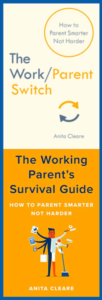Introducing a new partner to your children
Introducing a new partner to your children can be daunting: there are life-changing implications for all involved. But it is a bridge that more and more parents and children (and new partners) have to cross.
It doesn’t help that fairy tales are full of wicked step-mothers and the TV is peppered with abusive step-fathers. Talk to a room full of parents and you will hear a wide range of experiences, from heart-warming accounts of blended families that have brought love and value to every family member’s life, to long-term estrangements, rifts and rejection.
When it comes to introducing a new partner to your children, there is no guaranteed way to ensure a smooth ride. But follow these tips and the chances of it working out will be greatly increased.
Wait until you are sure
Relationships don’t always work out (as you will already know). Are you sure this relationship has long term potential? Many parents feel horribly guilty when they separate and it can be tempting to try and re-establish a happy normality as quickly as possible by replacing the old partner with a new one. Sometimes the shortcut turns out to be a cul-de-sac. Children feel safe and secure when their world is predictable and consistent: new partners coming and going from their lives will undermine their sense of love and security. Introducing a new partner to your children is best left until you are as sure as you can be that this person is here to stay.
Talk to your ex
It will help greatly if you and your ex can present this new relationship in a positive light – and springing it on your ex after the event (or leaving it to the children to tell them) is absolutely not going to make that happen. If you are thinking about introducing a new partner to your children, talk to your ex-partner before you do anything. If emotions are raw, give your ex some time to get used to the idea, to process their own emotions, and come round to approaching it positively. Listen to your ex’s views and fears. It may feel like you are handing them power over your new relationship but try to talk to each other in a calm business-like way. What matters is that you both co-operate to put the children’s needs first.
Slowly does it
Keep the first meeting short, casual and in a neutral location where the children are occupied and amused. Maybe involve the children in a fun activity to keep the pressure off everyone. If your children are very young, you might want to make it seem unplanned (e.g. bumping into each other at the park). Older children are likely to sniff out any deception so it is better to be open from the start. Avoid physical displays of affection in front of the children at first. Take it slowly and be sensitive to your children’s reactions.
At some point, you will need to give an age-appropriate explanation of the new relationship. Children do not really understand romantic relationships so try to use reference points that your child will understand. Young children enjoy playing with their friends, so you might say that you also like to have friends of your own age to spend time with. Make sure you present this new love as an ‘as well as’ love rather than an ‘instead of’ love. “I love you and I always will. But I also want to have someone to share grown up thoughts and feelings with.” (See Talking to children about sex and relationships.)
Be prepared for different reactions
Children are often very adaptable in new circumstances as long as they feel loved. But the things that worry them may not be obvious to adults and they often express their emotions through difficult behaviour rather than through words. Just because you love this new person doesn’t mean that your children will welcome them with open arms. So be prepared for any reaction. Your child might feel positive that there will be a new person in the family. Or they might feel jealous (they are used to having you to themselves). They might be frightened they are going to lose you or that there won’t be enough love to go around. They might be worried about how their other parent will feel, or be resentful about yet another change that they didn’t ask for. Many children harbour a secret wish for their parents to get back together – introducing a new partner to your children will mean letting go of that fantasy, which could cause a lot of sadness.
Your child might have just one of these feelings or go through all of them in quick succession. If you have more than one child, they might have completely different reactions from each other!
Try and acknowledge your child’s emotions and give them words to talk about them by saying what you see: “You look sad.” Don’t dismiss their feelings, no matter how out of proportion or vehemently expressed – dismissing their emotions just makes children (and adults) feel unheard. If the negative emotion is leading to unacceptable behaviour then calmly tell them what to do with that emotion that would be acceptable: “I can see you are angry but it is not OK to shout at me. Please say it again in a quieter voice.” (See How do I cope with teenage tantrums?)
Have time alone
Introducing a new partner to your children should not mean that you don’t spend lots of time one-to-one with your children too. Your children will still need lots of time with you without your new partner being present, especially if they live with you part-time. Your new partner needs to be prepared to take a back seat when the kids are around – find time to spend together alone away from the children to build your relationship.
Build new traditions
Memories, traditions and habits are part of the glue that bonds family members. Think about creating new traditions to help create a positive identity for your new blended family. Pancakes on Sunday mornings or Movie Nights. Agree a few basic age-appropriate house rules for everyone to follow (e.g. “We use kind words“). New partners should not take on a disciplining role – aim for responsible and caring adult rather than replacement parent figure (see these Step-parenting tips for more on this). Allow relationships to develop slowly: don’t expect your children to love your new partner (or even like them) immediately.
Good luck!
For younger children, you might find that reading story books is a good way to start conversations. Check out these Books about divorce and separation (2-7yrs) and Books for helping children cope with change.
Did you find this helpful? Subscribe to our monthly newsletters.








Gosh, it must be really hard to introduce a new partner to the kids. These are some good tips, I think it’s great advice to speak to the ex too. x
Staying on good speaking terms with the ex can be a huge challenge, but it usually helps!
I never thought about how difficult this must be before. These seem like great tips. I especially like the point about acknowledging feelings whilst still establishing boundaries.
It’s a situation that more and more families go through. There’s no perfect solution, but I hope the tips are helpful.
Fab tips been there and
It’s not easy great post
Thanks Nige, I appreciate the feedback!
What a fab post! I shall certainly take all this info on board should I ever introduce a new partner to my girls. Thank you so much for linking up to #SuperparentSaturday! x
Thanks for stopping by!
It’s something that has never really occurred to me, but gosh, thinking about it, it must be incredibly difficult. I’m sure so many parents in new relationships will find this really useful. Thankyou for linking up to #SuperparentSaturday
I guess we all hope it is something we will never need to do, but life doesn’t always pan out the way we planned and being a parent can be very complicating…. 🙂